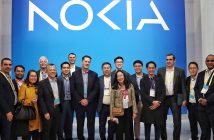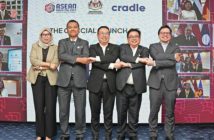
Singapore’s Deputy Prime Minister and Chairman of the National Research Foundation (NRF), has outlined an investment of almost SGD300 million in Singapore’s National Quantum Strategy (NQS) to advance Singapore’s growing Quantum industry.
Heng Swee Keat said the investment will strengthen the nation’s position as a leading hub in the development and deployment of quantum technologies over the next five years.
Speaking at an Asia Tech x Singapore (ATxSG) 2024 event on May 30, Heng also launched the Green Data Centre (DC) Roadmap to guide digital sustainability and chart green growth pathways for data centres, supporting AI and computing developments.
The NQS will focus on four funding initiatives anchored by four strategic pillars, namely;
- Scientific Excellence: The NQS will elevate the Centre for Quantum Technologies (CQT) into a national R&D centre with nodes in partner institutions, including A*STAR and local universities. This will bring together research talent across the country to drive national quantum research priorities.
- Engineering Capabilities: With the aim of strengthening Singapore’s capabilities in quantum technologies and accelerating the translation of quantum solutions, the Quantum Engineering Programme 3.0 (QEP 3.0) will be improved with the addition of a new National Quantum Sensor Programme (NQSP). The NQSP will bring together research performers and industry partners to collaborate on industry-centric research projects in the focal areas of position, navigation and timing, biomedical sensing and imaging, and remote sensing. A new National Quantum Processor Initiative (NQPI) will also be established to build local capabilities in the design and build-up of Singapore’s own quantum processor(s).
- Talent: A National Quantum Scholarships Scheme (NQSS) will be funded under the National Quantum Strategy to develop a pipeline of up to 100 PhD and 100 Masters-level quantum talent over the next five years to meet Singapore’s research and industry needs and build a quantum-ready workforce.
- Innovation and Enterprise Partnerships: Investments will develop a vibrant quantum ecosystem through strong industry partnerships and the nurturing of local enterprises that can work with NQO. The National Quantum Computing Hub (NQCH), a programme under NQO, will strengthen its innovation and enterprise and ecosystem-building efforts, by driving synergistic tripartite partnerships with industry, end-users and the research ecosystem to support the translation of quantum R&D into real-world solutions. Following the successful testbed trials of the National Quantum Safe Network (NQSN), IMDA also launched the National Quantum-Safe Network Plus (NQSN+), where operators will provide commercial quantum-safe solutions for businesses by the end of this year.
The Green Data Centre Roadmap
Dr Janil Puthucheary, Senior Minister of State for Communications and Information, told the event how Singapore is taking the lead in ensuring the long-term sustainable growth of data centres with the Green Data Centre Roadmap.
The Roadmap aims to provide at least 300 megawatts of additional capacity in the near term, with more through green energy deployments. Through the additional capacity, Singapore aims to seed innovative ways to accelerate energy efficiency, as well as hybrid ways to unlock further capacity through green energy. The Roadmap will accelerate data centre sustainability on two fronts;
- Energy Efficiency: Accelerating data centre’s energy efficiency at hardware and software levels and allowing industry and end-users to put in place best-in-class technologies to maximise efficiency, capacity and economic potential.
- Green Energy: Accelerating data centres’ use of green energy to expand capacity and exploring how Singapore can deploy this at scale over time to maximise space for continued DCs’ growth.
Building a trusted AI ecosystem through International Partnerships
Singapore has also been actively contributing and driving conversations in the international space on AI safety through the Model AI Governance Framework (Generative AI) and the Digital Forum of Small States (DFOSS). The Model AI Governance Framework is the first comprehensive framework that pulls together the different strands of global conversations surrounding AI governance.
The finalised framework was released on May 30, and will be mapped to international AI principles such as the G7 Hiroshima Principles for interoperability after receiving over 70 responses from around the world that largely endorse the framework’s multi-stakeholder and robust approach to AI governance.
Digital Forum of Small States Roundtable
Singapore also convened a conversation among the Digital Forum of Small States (Digital FOSS) members on the importance of small states collaborating on the design, development and implementation of AI Governance.
At the Digital FOSS Ministerial Dialogue hosted by the Minister of Communications and Information, Mrs Josephine Teo, Digital FOSS Ministers, Ambassadors and senior officials exchanged views on the challenges and opportunities that small states face on international cooperation on digital governance, including in areas such as AI.
A Digital FOSS AI Roundtable bringing together high-level representatives of the Digital FOSS Fellowship Programme discussed the Digital FOSS AI Governance Playbook for small states, which Singapore and Rwanda are leading the development of. Digital FOSS members also shared their experiences, challenges, and best practices in AI governance during the roundtable.





